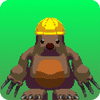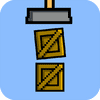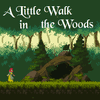Mastering HTML5 Game Development: Essential Languages, Tools, and Resources
Are you eager to dive into the exciting realm of HTML5 game development? Whether you’re a novice programmer or looking to expand your skills, creating games with HTML5 offers a gateway to unleashing your creativity. In this comprehensive guide, we’ll walk you through everything you need to know to get started, from mastering essential programming languages to leveraging the right tools and resources that streamline your development journey.
Understanding the Basics: Essential Languages for HTML5 Game Development
To kickstart your HTML5 game development journey, it’s crucial to grasp the foundational programming languages that power these games.
HTML5: The Foundation of Web-Based Games
HTML5 serves as the backbone of web-based game development, providing the structural framework and content presentation for your games. It defines the elements that compose your game’s interface, including buttons, text, images, and more. Understanding HTML5 basics such as tags, attributes, and the Document Object Model (DOM) is essential for structuring your game’s layout and user interface.
JavaScript: Adding Interactivity and Game Logic
JavaScript is the dynamic language of the web and plays a pivotal role in HTML5 game development. It enables you to add interactivity, handle user input, and manage game mechanics such as player movement, collision detection, and scoring systems. Familiarity with JavaScript frameworks and libraries like Phaser.js or Babylon.js can expedite development by providing pre-built functionalities for game physics, animations, and audio integration.
CSS3: Styling and Enhancing User Experience
While primarily a styling language, CSS3 plays a vital role in HTML5 game development by enhancing the visual presentation and user experience. It allows you to customize game elements’ appearance, including layout, colors, fonts, and animations. Mastering CSS3 techniques such as responsive design, transitions, and transformations ensures your games are visually appealing and optimized across different devices and screen sizes.
Choosing Your Development Environment and Tools
Selecting the right development environment and tools can significantly streamline your HTML5 game development process, from coding to deployment.
Integrated Development Environments (IDEs): Streamlining Development
IDEs such as Visual Studio Code, Sublime Text, or JetBrains WebStorm provide robust features tailored for web development, including syntax highlighting, code completion, debugging tools, and integration with version control systems like Git. These tools enhance productivity and facilitate collaborative work on game projects.
Game Engines and Libraries: Accelerating Development
Utilizing game engines and libraries like Phaser.js, Three.js, or PixiJS can expedite HTML5 game development by offering reusable components and built-in functionalities for handling graphics rendering, animation, physics simulation, and audio management. These frameworks abstract complex programming tasks, allowing developers to focus more on game design and mechanics implementation.
Version Control Systems: Ensuring Code Management
Implementing version control with Git and platforms like GitHub or GitLab enables efficient code management, collaboration, and version tracking throughout the development lifecycle. It ensures project continuity, facilitates team collaboration, and simplifies code deployment and updates.
Learning Path: Resources and Tutorials to Guide You
Embarking on your HTML5 game development journey requires continuous learning and exploration. Here are valuable resources and learning paths to help you get started and advance your skills:
Online Courses and Tutorials: Structured Learning
Platforms like Coursera, Udemy, and Khan Academy offer comprehensive courses and tutorials specifically tailored to HTML5 game development. These courses cover fundamental concepts, advanced techniques, and practical project-based learning exercises to deepen your understanding and proficiency.
Documentation and Community Support: Reference and Collaboration
Consulting official documentation from resources like W3Schools, MDN Web Docs, or specific framework documentation provides valuable insights, examples, and best practices for implementing game features, troubleshooting issues, and optimizing performance. Engaging with online communities, forums, and developer groups allows you to seek advice, share knowledge, and collaborate with fellow developers.
Why HTML5 Offers Advantages Over Other Programming Languages
HTML5 stands out in the world of game development for several reasons:
- Accessibility: HTML5 games run directly in web browsers without requiring users to download or install additional software, making them easily accessible across different devices and platforms.
- Cross-Platform Compatibility: HTML5 games are compatible with various devices, including desktops, laptops, tablets, and smartphones, ensuring a broader audience reach compared to platform-specific games.
- Ease of Learning: HTML5, JavaScript, and CSS3 are beginner-friendly languages with extensive online resources, tutorials, and community support, making them accessible for developers at all skill levels.
- Cost-Effectiveness: Developing HTML5 games typically involves lower production costs compared to native game development, as it eliminates the need for multiple versions for different platforms.
- Rapid Prototyping: HTML5 frameworks and libraries like Phaser.js provide tools for rapid prototyping and development iteration, allowing developers to quickly test ideas and refine gameplay mechanics.
Conclusion: Your Path to HTML5 Game Development Begins Here
Embarking on the journey of HTML5 game development offers boundless opportunities for creativity, learning, and innovation. By mastering essential programming languages like HTML5, JavaScript, and CSS3, and leveraging powerful tools and resources, you’re equipped to bring your game ideas to life and engage players worldwide.
Start your journey today, explore different genres, experiment with game mechanics, and most importantly, have fun crafting your HTML5 games!




















